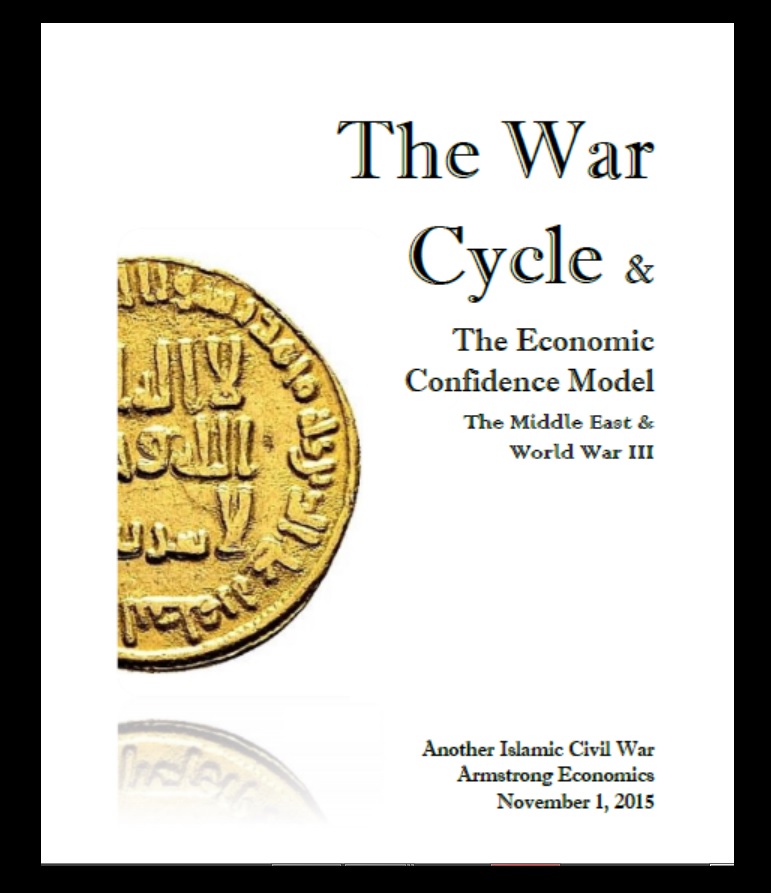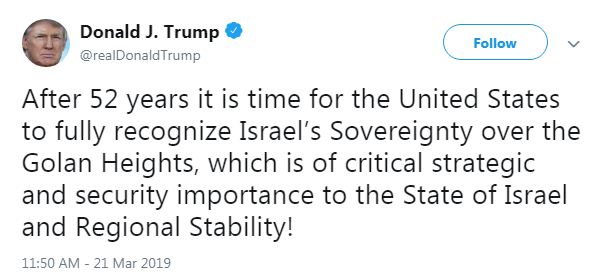Home » Posts tagged 'middle east' (Page 6)
Tag Archives: middle east
Brexit, Britain and the Permanent Crisis in the Gulf
Brexit, Britain and the Permanent Crisis in the Gulf
What on Earth were the British politicians and officials thinking who gave the go-ahead for the seizure of the Iranian oil tanker Grace 1 off Gibraltar on 4 July? Did they truly believe that the Iranians would not retaliate for what they see as a serious escalation in America’s economic war against them?
The British cover story that the sending of 30 Royal Marines by helicopter to take over the tanker was all to do with enforcing EU sanctions on Syria, and nothing to do with US sanctions on Iran, was always pretty thin.
The Spanish foreign minister, Josep Borrell, has said categorically that Britain took over the tanker “following a request from the United States to the United Kingdom”.
One fact about Iranian foreign policy should have been hardwired into the brain of every politician and diplomat in Britain, as it already is in the Middle East, which is that what you do to the Iranians they will do to youat a time and place of their own choosing.
The US and UK backed Saddam Hussein in his invasion of Iran in 1980, but this was not unconnected – though it was impossible to prove – with the suicide bombing that killed 241 US service personnel in the marine barracks in Beirut in 1983.
Commentators seeking an explanation for the UK’s seizure of the Grace 1 suggest that it was suckered into the action by super hawks in the US administration, such as the national security adviser John Bolton.
But, given the inevitability of the Iranian reaction against British naval forces too weak to defend British-flagged tankers, the British move looks more like a strategic choice dictated by a lack of other options.
Confrontation with the EU over Brexit means that Britain has no alternative but to ally itself ever more closely to the US.
…click on the above link to read the rest of the article…
What the latest secret government file tells us about UK Middle East policy
What the latest secret government file tells us about UK Middle East policy

The British government is refusing to release a 1941 file on Palestine, as it might “undermine the security” of Britain and its citizens. Why would a 78-year-old document be seen as so sensitive in 2019?
One plausible reason is that it could embarrass the British government in its relations with Israel and Iraq, and may concern a long but hidden theme in British foreign policy: creating false pretexts for military intervention.
The Colonial Office document, at the National Archives in London, was uncovered by journalist Tom Suarez and concerns the “activities of the Grand Mufti [Haj Amin al-Husseini] of Jerusalem” in 1940-41.
After the assassination of Lewis Andrews, British district commissioner for Galilee, in September 1937, the British Government dismissed al-Husseini from his post as president of the Supreme Muslim Council and decided to arrest all members of the Arab Higher Committee, including Husseini.
He took refuge in the Noble Sanctuary (al-Haram al-Sharif), fled to Jaffa and then Lebanon, and ended up in Iraq, where he played a role in the Iraqi national anti-British movement.
He spent the Second World War moving between Berlin and Rome and took part in the propaganda war against Britain and France through Arabic radio broadcasts.
A plan ‘to clip the mufti’s wings’
In April 1941, nationalist army officers known as the Golden Square staged a coup in Iraq, overthrowing the pro-British regime, and signalled they were prepared to work with German and Italian intelligence. In response, the British embarked on a military campaign and eventually crushed the coup leaders two months later.
But Suarez discovered in the files that the British were already wanting such a “military occupation of Iraq” by November 1940 – well before the Golden Square coup gave them a pretext for doing so.
…click on the above link to read the rest of the article…
Washington’s wager concerning Iran
Washington’s wager concerning Iran
Even more than Syria, Iran is now at the heart of the confrontation between East and West. The astounded public is witnessing Washington’s daily about-turns in what seems – mistakenly – to be an escalation towards war between the two countries. But this is not what it is about. Fortunately, the two Great Powers have demonstrated for the last 75 years that they are reasonable, and have always managed to stand down before they arrive at the point of mutual destruction.

Tension is apparently rising between Washington and Teheran. As usual, President Trump is blowing hot and cold. Thus, on 21 June, he went as far as ordering the bombing of Iran, then changed his mind a few minutes before attacking his targets. And yet this behaviour, which has often allowed Donald Trump to win successes in the West, does not carry much weight with the Persian psychology [1]. But is he trying to impress Iran ?
The attitude of the North Americans must be understood from the point of view not only of their Middle Eastern policy, but also their global policy [2]. More than a conflict with Iran, it’s the balance of power between East and West that is at stake.
Since the Second World War, the central preoccupation of the United States has been their rivalry with the USSR, then Russia. Since the first Geneva Conference (June 2012), on the margins of the Syrian conflict, Moscow has proposed to be the guarantor of regional peace alongside and in equality with Washington. This recalibration of international relations was imagined under the auspices of the ex-Secretary General of UNO, Kofi Annan.
…click on the above link to read the rest of the article…
The Ongoing Restructuring of the Greater Middle East
The Ongoing Restructuring of the Greater Middle East
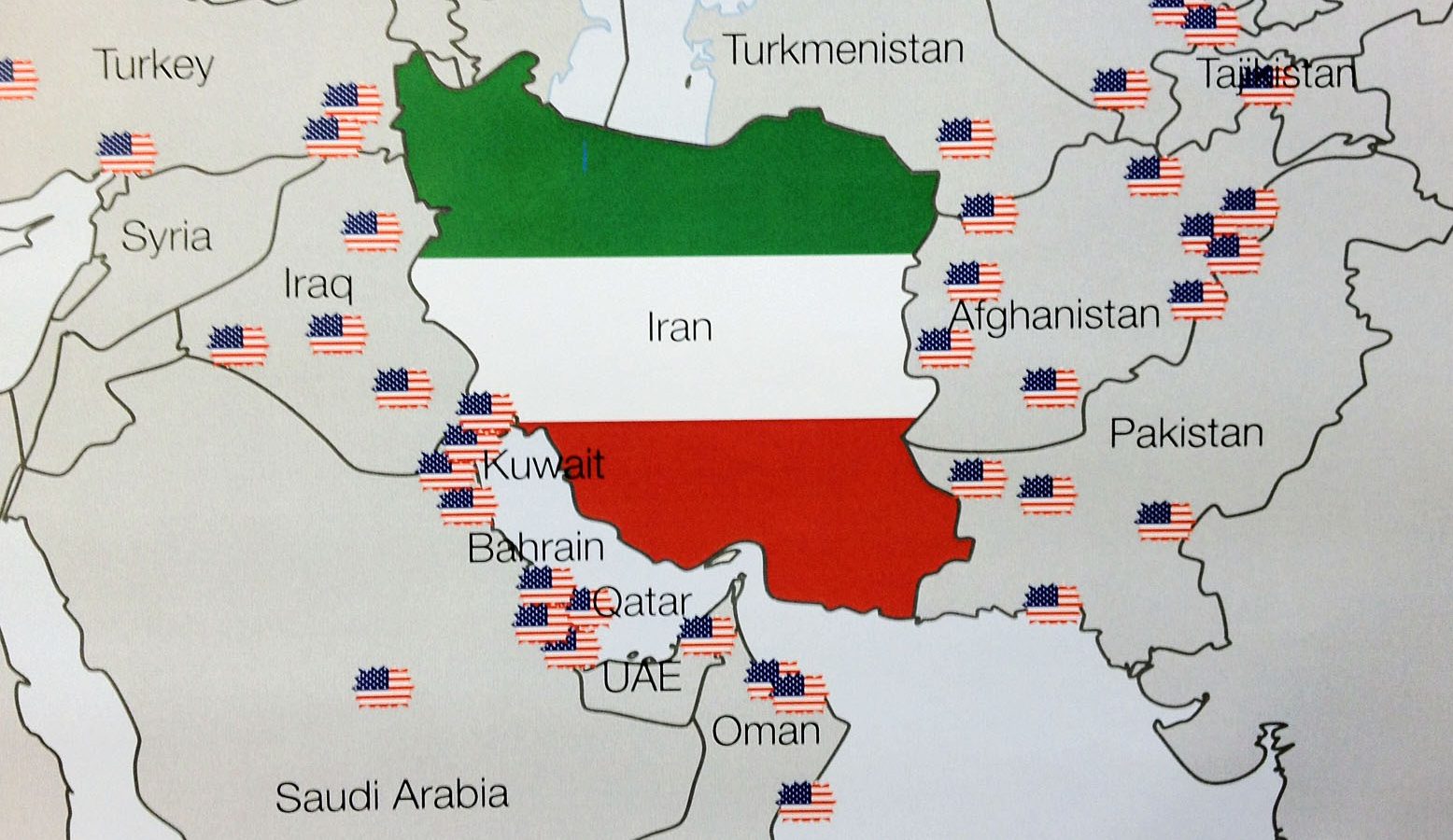
Map showing the 40 military bases the US has been compelled to position around Iran to combat Iranian aggression.
So, according to the corporate media, and to President Literally Hitler, himself, while America was sleeping last Friday morning, the U.S. Air Force was just minutes away from bombing the bejesus out of some desolate outposts somewhere in the Iranian desert and launching another catastrophic military blunder in the Middle East.
At approximately 0400 Zulu time, President Hitler and his top advisors (among them, John “the Walrus of Death” Bolton) were gathered in the Pentagon’s War Room, flight paths arcing across the big board. The hotline to Vladimir Putin’s office in St. Basil’s Cathedral in Moscow had been activated. The full force of the U.S. military was about to be brought to bear upon a package of top-level Iranian targets with no strategic value whatsoever.
Apparently, “planes were in the air!” It was all so terribly, terribly exciting.
This awesome demonstration of American resolve was meant to be punishment for the vicious slaughter of an expensive U.S. military drone, which was peacefully invading Iranian airspace, and not at all attempting to provoke the Iranians into blowing it out of the sky with a missile so the U.S. military could “retaliate.”
The military-industrial complex would never dream of doing anything like that, not even to further the destabilization and restructuring of the Greater Middle East that they’ve been systematically carrying out the since the collapse of the former Soviet Union, which … more on that in just a moment.
…click on the above link to read the rest of the article…
War Propaganda and US Military Buildup Against Iran
WAR PROPAGANDA AND US MILITARY BUILDUP AGAINST IRAN
Tensions continue to grow in the Persian Gulf.
In early May, the US deployed the USS Abraham Lincoln strike group as well as the USS Arlington amphibious transport dock, additional marines, amphibious vehicles, rotary aircraft, Patriot missiles and a bomber strike force to the region claiming that this is a needed measure to deter Iran, which allegedly prepares to attack US troops and infrastructure.
On May 21, Acting Defense Secretary Patrick Shanahan claimed that the US had succeeded in putting the potential of Iranian attacks “on hold.” The declared victory over the mythical “Iranian threats” did not stop the US from a further military buildup.
On May 25, President Donald Trump declared that the US is sending 1,500 troops, 12 fighter jets, manned and unmanned surveillance aircraft, and a number of military engineers to counter Iran.
Trump also approved an $8 billion sale of precision guided missiles and other military support to Saudi Arabia, using a legal loophole. The Trump administration declared an emergency to bypass Congress, citing the need to deter what it called “the malign influence” of Iran.
The forces deployment was accompanied with a new round of fear-mongering propaganda.
On May 24, Adm. Michael Gilday, director of the Joint Staff, issued a statement saying that “the leadership of Iran at the highest level” ordered a spate of disruptive attacks including those targeting an Aramco Saudi oil pipeline, pumping facilities, the recent sabotage of four tankers near the Strait of Hormuz, as well as a May 19 lone rocket attack on the area near the US embassy in Baghdad. Besides this, he repeated speculations about “credible reports that Iranian proxy groups intend to attack U.S. personnel in the Middle East”. Nonetheless, Adm. Gilday offered nothing that may look like hard proof to confirm these claims.
…click on the above link to read the rest of the article…
Saudi King Urges Global Coalition To “Use All Means To Stop Iran” At Emergency Summit
Saudi King Urges Global Coalition To “Use All Means To Stop Iran” At Emergency Summit
Perhaps sensing that the US “maximum pressure” campaign against Iran is fast deflating, with even ultra-Hawk John Bolton late this week saying American military build-up had successfully “deterred” imminent Iran threats – suggesting the crisis has been averted – the Saudis are now going on the offensive. Image source: AP via Al Jazeera
Saudi Arabia’s aging King Salman went on an anti-Iran tirade during an emergency meeting of Arab leaders hosted in Mecca on Thursday, saying the Shia country is the greatest threat to global security for the past four decades. He also echoed past US and Israeli charges that Tehran is currently developing nuclear and ballistic missiles in order to threaten its neighbors and extend its influence over the region.
He said Iran’s leaders were “harboring global and regional terrorist entities and threatening international waterways.” He called for “using all means to stop the Iranian regime” from its regional “interference”. Iran for its part rejected these as “baseless accusations” and has denied it had any role in a spate of recent “sabotage” attacks in the Gulf region.
The king further condemned Iran’s tactics to disrupt maritime trade and global oil supplies in “glaring violation of UN treaties” following Riyadh’s blaming Iranian operatives for using underwater mines to attack and “sabotage” four tankers near the Strait of Hormuz weeks ago, two of which were Saudi flagged.
“The Iranian regime has been interfering in other countries’ affairs, developing their nuclear programs and threatening international navigation,” King Salman said during his speech, according to a translation by Saudi-owned Al-Arabiya.
Trump Mulls Pentagon Plan To Deploy 10,000 Troops To “Monitor Iran”
Trump Mulls Pentagon Plan To Deploy 10,000 Troops To “Monitor Iran”
The White House is set to mull a Pentagon plan for deployment of 10,000 new troops to the Middle East on Thursday following heightened tension with Iran, the AP reported Wednesday.
It’s as yet unclear whether President Trump will sign off on the full number, but the White House is expected to send at least some of the requested forces, the report noted, citing anonymous defense official sources.
According to the Associated Press report the plan calls for “defensive forces” to “monitor” the Iran threat:
Officials said the move is not in response to any new threat from Iran, but is aimed at reinforcing security in the region. They said the troops would be defensive forces, and the discussions include additional Patriot missile batteries, more ships and increased efforts to monitor Iran.
Though at the start of this week there appeared a calming of war rhetoric out of Washington, with the president signalling that Iran’s leaders should “call me,” the situation remains highly volatile and dangerous, considering a US carrier strike group is in the region along with B-52 bombers flying over and near the Persian Gulf, based out of Qatar.
Iran military leaders also issued new threats earlier this week over their “full control” over the Strait of Hormuz, the narrow vital oil shipping choke point in the Persian Gulf.
The statements, according to Reuters, came as tensions reached their highest, but simultaneous to the Pentagon signalling there’s no plan to go to war:
A senior Iranian Revolutionary Guards commander said on Wednesday that Guards and regular Iranian military forces had complete control of Gulf waters north of the Strait of Hormuz, according to the semi-official Fars news agency.
…click on the above link to read the rest of the article…
The Struggle Is The Meaning 318
The Struggle Is The Meaning 318
There is no conceivable interest of the ordinary people of the Western world being served by the crazed decision of their governments to firmly take the Sunni side in the Sunni/Shia tensions of the Islamic world, and to do so in a fashion which deliberately exacerbates points of armed conflict across the Middle East.
It is even more extraordinary that, in doing so, the West is deliberately forwarding the interests of two nations which have philosophies that are entirely antithetical to the supposed tenets of Western philosophy. Those states are Saudi Arabia, an unrepentant despotism, which promotes and finances a theocratic ideology directly responsible for the major terrorist attacks on the West, and Israel, which is now an openly apartheid state. The USA/Saudi/Israel alliance is underpinned by the identification of a common enemy in Iran and other Shia communities.
Of course the patent absurdities of the alliance point directly to the fact that the real motive is entirely different; this is all about the financial ties of the 1% and the permanent interest of the military industrial complex and their financiers in stoking the flames of war.
Which is an opportune moment to mention – as I have several times over the years – that if I had to recommend one single book to illuminate your view of the world it would be Imperialism by J A Hobson. His brilliant perception that empire had been a net disbenefit to the ordinary people of both the colonial power and the colonised, with the advantages reaped purely by the military, financial, armaments and political classes, and his groundbreaking methods of proving his thesis, is one of the great works of human thought. Lenin plagiarised Hobson extensively.
…click on the above link to read the rest of the article…
Leaked Pentagon Plan Calls For 120,000 Troops To Counter Iran
Leaked Pentagon Plan Calls For 120,000 Troops To Counter Iran
As Michael Pompeo travels to Brussels to discuss the Iranian threat amid a flare-up in tensions that has brought the US to the brink of an armed conflict, the New York Times has published details from a confidential military plan presented to top national security officials that envisions sending as many as 120,000 troops to the Middle East should Iran attack American forces or start ramping up work on nuclear weapons (something it has promised to do if its European partners don’t meet their commitments under the Iran deal).
Though the revised plan – it had been modified to incorporate suggestions from John Bolton – doesn’t include plans for a land invasion, it does reflect “the influence of Mr. Bolton, one of the administration’s most virulent Iran hawks, whose push for confrontation with Tehran was ignored more than a decade ago by President George W Bush.”
It’s unclear whether Trump himself has seen, or been briefed on, the plan. Asked about it, Trump said “we’ll see what happens with Iran. If they do anything, it would be a very bad mistake.”
Here are a few key details from the plan according to more than a half-dozen senior administration officials who spoke with the NYT:
- The 120,000 troops called for in the plan would be close to the size of the force that invaded Iraq in 2003. The reversal of the US troop presence in the region under Obama and Trump has reportedly emboldened leaders in Tehran and the IRGC that there’s no appetite in the US for a war with Iran. Deploying this many troops would take weeks or months.
…click on the above link to read the rest of the article…
THE COMING MIDDLE EAST OIL CRISIS: The Collapse Of Net Oil Exports
THE COMING MIDDLE EAST OIL CRISIS: The Collapse Of Net Oil Exports
The Middle East is heading for a crisis in its oil industry. Unfortunately, the market doesn’t realize there is any danger on the horizon because it mainly focuses on how much oil the Middle East is producing rather than its exports. You see, it doesn’t really matter how much oil a country produces but rather the amount of its net oil exports.
A perfect example of this is Mexico. As I mentioned in a recent article, NEXT OIL DOMINO TO FALL? Mexico Becomes A Net Oil Importer, Mexico is now a net importer of oil for the first time in more than 50 years. Furthermore, the IEA – International Energy Agency, published in their newest OMR Report that Mexico is forecasted to lose another 170,000 barrels per day of oil production in 2019. Thus, this is terrible news for the United States southern neighbor as it will have to import even more oil to satisfy its domestic consumption.
Now, when we think of the Middle East, we are mostly concerned with its oil production. However, the Middle Eastern countries, just like Mexico, have been increasing their domestic consumption, quite considerably, over the past 40+ years. How much… well, let’s take a look. Since 2000, total Middle East domestic oil consumption jumped from 5.1 million barrels per day (mbd) to 9.3 mbd in 2017:

As we can see, while Middle East oil production increased by 7.9 mbd from 2000 to 2017, domestic consumption expanded by 4.2 mbd. This means that more than 50% of the Middle East’s production growth during this period was absorbed by domestic use. The next chart shows how the changes in the regions oil production and consumption impacted net oil exports.

…click on the above link to read the rest of the article…
Will US Troops Be At Greater Risk After Tit-For-Tat ‘Terrorist Org’ Designations With Iran?
Will US Troops Be At Greater Risk After Tit-For-Tat ‘Terrorist Org’ Designations With Iran?
Following the US decision to designate Iran’s Islamic Revolutionary Guards Corps as a terrorist organization, and Iran’s decision to do the same with US Central Command in response, Russia’s RT has suggested that the escalation in tensions may put American troops at greater risk while operating in the Middle East.
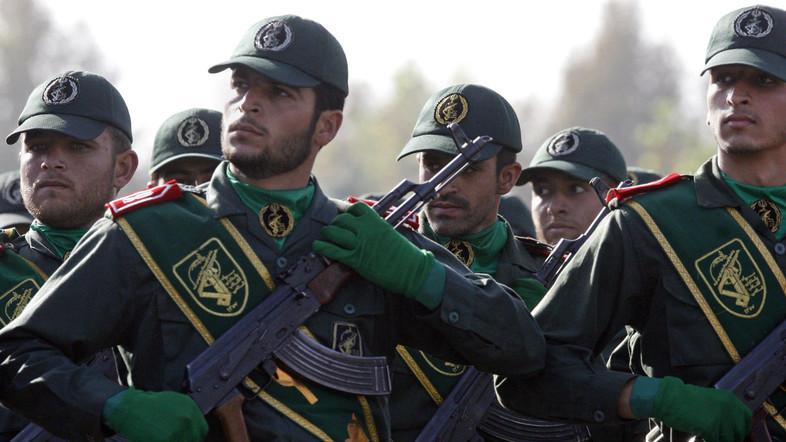
For example, the 2016 detention of 10 US sailors who strayed into Iranian waters in the Persian Gulf may have gone differently today than it did three years ago.
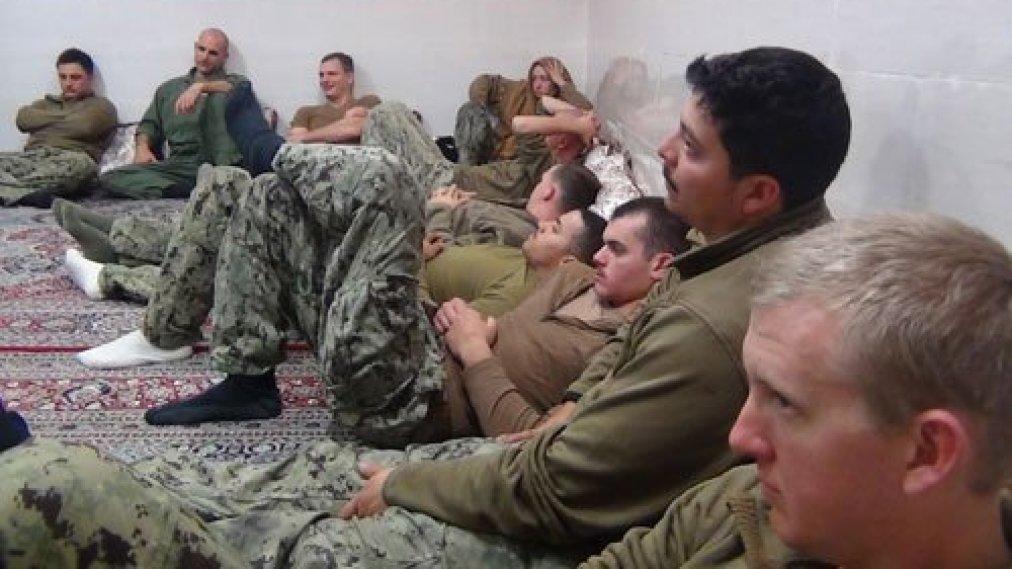
“The approach will be much different… the American soldiers would be treated as terrorists and not as soldiers of a [state-run] army,” said Ali Rizk, a Middle East-based journalist and writer.
Terrorism is a criminal offense under Iranian law, and so “Iran could have taken the toughest action, including imprisonment and a subsequent trial,”Vladimir Sazhin, senior research fellow at Russia’s Institute for Oriental Studies, stated. –RT
And while National Security John Bolton is undoubtedly a huge fan of the new terrorist designation pissing match, the last two administrations were hesitant to do the same, according to the New York Times.
The George W. Bush administration considered a range of tough actions on Iran during the Iraq war, but held back.
“The potential blowback vastly outweighs the benefits,” said Jeffrey Prescott, a senior Middle East director under President Barack Obama.
Wendy R. Sherman, a former top State Department official, said the Obama administration considered designating the Revolutionary Guards a foreign terrorist organization, but decided against it because there would be no practical payoff given the risks to Americans and the fact the group was already under other sanctions.
“By designating a foreign military as a foreign terrorist organization, we were putting our troops at risk, particularly our troops in Iraq, next door to Iran,” she said.
…click on the above link to read the rest of the article…
Trump – Israel – Putin – Middle East
Trump – Israel – Putin – Middle East
The interesting aspect of our war models has been that this cycle turned up in 2014 and we really do not reach the point of a major peak before 2022/2023. Back in 2015, we published a segment on the rising tensions that would emerge in the Middle East – the War Cycle. We warned about the division along the lines of religion in the Middle East which has pitted Saudi Arabia against Iran would become the major issue. As far as Israel was concerned, this would tend to turn up from January 10th, 2019, which is the conclusion of a 51.6-year wave from the 1967 6-Day war. Now the pieces are beginning to line up.
U.S. President Donald Trump’s statement that “it is time for the United States to fully recognize Israel’s sovereignty over the Golan Heights” received an enthusiastic welcome in Israel. Prime Minister Benjamin Netanyahu, was boosted in his position in the upcoming April 9th elections. He said he welcomed this “Purim miracle.” His rival Benny Gantz, whose party’s leading lights helped push for American recognition of the Golan’s annexation, said in a statement that Trump was cementing his place in history as a true friend of Israel.
That Netanyahu and Gantz were both delighted no doubt. The annexation of the Golan and the settlements established there enjoy widespread support in Israel. Ever since the Yom Kippur War of 1973, Syria has refrained from any attempt to recover the Golan by force. After 51.6 years, even the Druze residents of the northern Golan had accepted Israeli rule without rebelling. Naturally, Syria slammed Trump’s statement that it was time to recognize Israeli sovereignty over the Golan Heights as “irresponsible” remarking that it confirms “the blind bias of the United States to the Zionist entity.”
…click on the above link to read the rest of the article…
Moving Forward, Iran Outflanks the U.S. in Iraq and Beyond
Moving Forward, Iran Outflanks the U.S. in Iraq and Beyond
Iran has successfully navigated the first phase of its resistance to U.S. sanctions pressure. The U.S. State Department has admitted it’s goal of reducing Iran’s oil exports to zero is not feasible.
The goal now is a 25% drop to 800,000 barrel per day. And that is no joke. It’s a big drop from where Iran was looking to produce in the coming years under the auspice of the JCPOA.
The U.S. will not stop until all avenues have been exhausted or Trump fires his current cabinet.
Iran’s total non-oil exports have suffered as well, since gas condensate exports have also dropped along with the crude oil numbers.
But Iran is finding friends in other places. They are currently finalizing a free trade agreement with the Eurasian Economic Union (EAEU) with Belarus leading the talks at the 15th meeting between their Joint Economic Committee.
Iran’s non-oil exports, however, are still just one-fifth of their peak exports. Like Russia it is working quickly with regional partners to change that dynamic.
It won’t be enough to overcome the U.S.’s economic pressure in the short term.
But as I always say if it survives the initial onslaught then market forces open up opportunities for change. Things like INSTEX, the EU special purpose vehicle for getting around U.S. sanctions, is a perfect example.
Bilateral trade outside of the U.S. dollar is another.
North-South Trade Routes
The completion of the North South Transport Corridor (NSTC) is also helping. For example, trade turnover between Azerbaijan and Iran rose more than 70% last year.
Speaking in the event, [Azeri Trade Minister] Mustafayev mentioned the 12 meetings between the two countries’ presidents during the past five years and said “that is an indication of how good the relations between the two countries are.”
…click on the above link to read the rest of the article…
Saudi Arabia Is the World’s Top Arms Buyer
Saudi Arabia Is the World’s Top Arms Buyer
Saudis increased purchases 192% over five years Jason Ditz Posted on March 10, 2019Categories NewsTags Saudi Arabia
Most reports on international arms sales focus on the biggest sellers. That inevitably means the United States, the largest exporter by far in the growing market. You can’t have sales without buyers, however, and that side of the equation centers heavily on the Middle East.
Middle Eastern countries now buy more than a third of all global arms. The biggest customer not just in the Middle East but in the world, is Saudi Arabia,whose purchases have soared 192% over a five year period.
Locked in an endless war in Yemen, and always looking toward a war with Iran, Saudi Arabia has seen its military spending soar in recent years. Recent estimates have put Saudi Arabia at the third costliest military on Earth, behind on the US and China, and ahead of Russia.
Unlike the US, China, or Russia, however, Saudi Arabia lacks a huge decades-old military-industrial complex to make all their weapons of war. Instead, the Saudis are pouring into overseas contracts, buying vast amounts of arms from the US and Britain.
The Saudis show no sign of slowing down on this, but it isn’t clear how sustainable this is either. Already, Saudi war crimes are fueling a lot of calls to rethink arms sales to them. On top of that, the Saudis are spending 10% of their annual GDP on a mostly-imported military, which is a heavy burden for their economy to bear.
Another War for Oil on the Agenda? Thank Ted Cruz
Another War for Oil on the Agenda? Thank Ted Cruz
Very important identical bills were introduced in the U.S. Senate and House in late February, but you’ve likely not heard of them – even though they could literally blow up the Middle East and take the world much closer to World War III.
On February 26, Senators Ted Cruz (R-TX) and Tom Cotton (R-AK) introduced a bill asserting U.S. recognition of Israeli sovereignty over the Golan Heights in Syria – thereby attempting to change long-standing U.S. policy and to defy international law, which considers the Golan as “occupied territory” that Israel must surrender. The bill was co-sponsored by Senators Marco Rubio (R-Fl), Kevin Cramer (R-ND) and Lindsey Graham (R-SC). An identical bill was filed in the House by Rep. Mike Gallagher (R-WI).
In one of the very few articles written about these bills to date, MintPress News (Feb. 27) noted that U.S. recognition of Israel’s claim to the Golan Heights “could result in an all-out war between Israel and Syria as well as with Syrian allies such as Iran and Lebanon’s Hezbollah. Given that Israel has been preparing for such a war for well over a year and that Israel has been given the authority to bring U.S. troops into that conflict if and when it occurs, the likely consequences of the passage of this bill should be treated with the gravity they deserve.” [1]
So why has there been so little press coverage of these companion bills? Presstv.com (Feb. 28) suggested two reasons: 1) the American Israel Public Affairs Committee (AIPAC) has “kept mum” about the bills; and 2) “Concerned about a possible international backlash, Trump administration officials have privately asked Israel to quiet the lobbying campaign” for this legislation. [2] Without AIPAC lobbying about the issue, the mainstream media apparently acquiesce in the silence.
…click on the above link to read the rest of the article…



